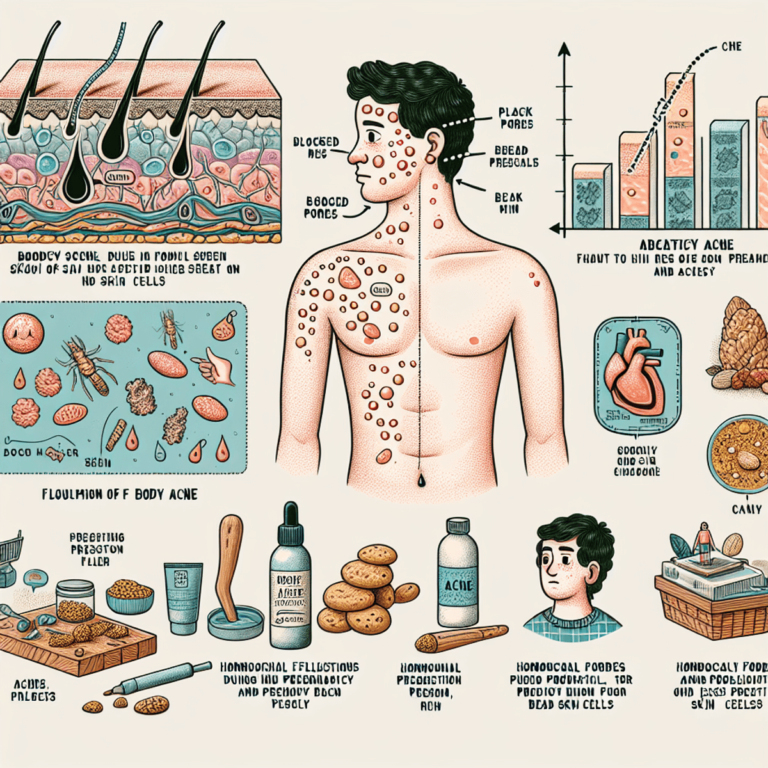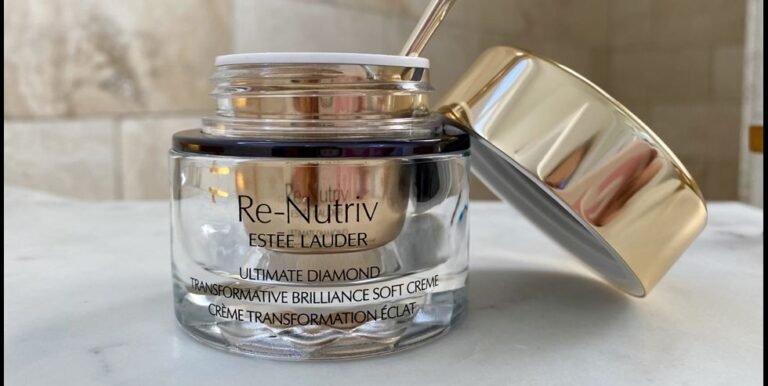How to Get Rid of Cystic Acne: Tips from a Dermatologist

Understanding Cystic Acne
Cystic acne is a severe form of acne characterized by large, painful bumps that develop deep under the skin. These cysts are often red and tender, filled with pus, and can occur on the face, back, chest, and shoulders. Unlike other types of acne, such as blackheads and whiteheads which remain on the surface, cystic acne forms deeper within the skin.
Differences Between Cystic Acne and Other Types of Acne
- Blackheads: Open pores clogged with dead skin cells and oil.
- Whiteheads: Closed pores filled with sebum.
- Papules: Small red bumps caused by inflamed or infected hair follicles.
- Pustules: Similar to papules but contain pus.
- Nodules: Large, hard bumps beneath the skin’s surface.
- Cystic Acne: Deep, inflamed, pus-filled cysts that are typically more painful and severe than other forms.
Causes of Cystic Acne
Several factors contribute to the development of cystic acne:
- Hormonal Changes: Fluctuations during menstruation, pregnancy, or due to conditions like polycystic ovary syndrome (PCOS) can trigger cystic acne.
- Genetics: Family history plays a significant role; if your parents had severe acne, you’re more likely to develop it too.
- Environmental Factors: High humidity levels or wearing tight clothing can exacerbate acne conditions.
- Medications: Certain drugs, including corticosteroids and lithium, can cause or worsen cystic acne.
Understanding these underlying causes is key in learning how to get rid of pimples effectively. For those struggling with persistent breakouts and wondering how do you get rid of pimples, recognizing that cystic acne often requires specialized treatment can make a significant difference. While some may seek quick fixes for how to remove pimples overnight, addressing the root causes ensures long-term relief from this challenging condition.
Symptoms and Diagnosis
Common Symptoms of Cystic Acne
Cystic acne shows up differently than other types of acne. Key symptoms include:
- Large, painful bumps: These cysts are often red, tender, and filled with pus.
- Deep under the skin: Unlike typical pimples, cystic acne develops deep beneath the skin’s surface.
- Scarring: Due to the depth and severity, cystic acne is more likely to leave scars if not treated properly.
- Locations: Commonly appears on the face, back, chest, and shoulders.
How Dermatologists Diagnose Cystic Acne
Dermatologists use a combination of visual examination and patient history to diagnose cystic acne. Here’s what to expect during a consultation:
- Visual Examination: The dermatologist will look at the affected areas to assess the severity and type of acne.
- Patient History: Questions about family history, hormonal changes, medications, and skincare routine help identify potential causes.
- Additional Tests: In some cases, blood tests or hormonal assessments may be recommended to rule out underlying conditions like polycystic ovary syndrome (PCOS).
Importance of Consulting a Dermatologist for Proper Diagnosis
Consulting a dermatologist is crucial for several reasons:
- Accurate Diagnosis: Only a professional can distinguish between different types of acne and identify cystic acne accurately.
- Customized Treatment Plans: A dermatologist can prescribe treatments tailored to your specific condition, which is essential for effective management.
- Preventing Scarring and Complications: Early intervention can prevent long-term scarring and complications associated with untreated cystic acne.
Understanding these symptoms and seeking professional advice are vital steps in managing cystic acne effectively.
Treatment Options for Cystic Acne
What Dermatologists Can Offer
To effectively treat cystic acne, a personalized approach is often necessary. A dermatologist can create a treatment plan tailored to your specific skin needs, which may include a combination of the following treatments:
- Oral antibiotics: These medications help reduce the bacteria that contribute to acne and decrease inflammation. Commonly prescribed antibiotics include doxycycline, minocycline, and tetracycline.
- Retinoids: These Vitamin A derivatives help unclog pores and promote cell turnover. Retinoids such as tretinoin, adapalene, and tazarotene are potent options that can provide significant improvement over time.
- Hormonal treatments: For women, hormonal therapies like birth control pills or spironolactone can help manage acne by regulating hormones that trigger oil production.
- Cortisone injections: A quick fix for painful cysts, cortisone injections deliver immediate relief by reducing inflammation and shrinking the cyst.
Over-the-Counter Treatments
While professional treatments are often necessary, over-the-counter (OTC) products can also play a crucial role in managing symptoms.
Benzoyl Peroxide: A Key Ingredient in OTC Products
Benzoyl peroxide is commonly used in acne treatment due to its antibacterial properties. It works by:
- Reducing acne-causing bacteria
- Decreasing oil production
- Promoting shedding of dead skin cells
You can find benzoyl peroxide in various concentrations (2.5%, 5%, 10%) in cleansers, gels, and creams. It’s particularly effective for mild to moderate acne but may cause dryness or irritation in sensitive skin.
Salicylic Acid: Another Effective OTC Ingredient
Salicylic acid is another popular ingredient found in many OTC products. It helps exfoliate the skin and keep pores clear by:
- Removing dead skin cells
- Penetrating into pores to dissolve debris
- Reducing inflammation
Salicylic acid is typically available in concentrations between 0.5% and 2% and can be found in cleansers, toners, and spot treatments. It’s especially beneficial for those with oily or combination skin.
When to Consider Over-the-Counter Options
Over-the-counter treatments can be effective for mild cases of cystic acne or as part of a broader treatment plan. Consider OTC options if you:
- Have mild to moderate acne
- Are looking for a supplementary treatment alongside prescription medications
- Want an accessible starting point before consulting a dermatologist
However, severe cases usually require professional intervention for optimal results.
Understanding the range of available treatments equips you with the knowledge needed to make informed decisions about managing your cystic acne effectively.
Preventive Measures
Effective strategies for preventing cystic acne can significantly improve the condition of your skin. Adopting a gentle skincare routine plays a crucial role in minimizing flare-ups and maintaining overall skin health.
1. Importance of a Gentle Skincare Routine
A consistent and gentle skincare routine is essential in managing cystic acne. Harsh products can irritate the skin, leading to increased inflammation and breakouts. Instead, opt for mild, non-comedogenic products that won’t clog pores. These products help maintain the skin’s natural balance without stripping away essential oils.
2. Washing the Skin Twice Daily with a Mild Cleanser
Washing your face twice daily is vital for removing excess oil, dirt, and impurities that can contribute to clogged pores. Use a mild cleanser specifically formulated for sensitive or acne-prone skin. Avoid scrubbing too hard as this can cause irritation and worsen acne symptoms. Stick to lukewarm water rather than hot water to prevent drying out the skin.
3. Avoiding Touching or Picking at Cysts
Resist the urge to touch or pick at cysts. This habit not only spreads bacteria but also increases the risk of infection and scarring. If you need to touch your face, ensure your hands are clean. Consider using tools like cotton pads instead of fingers when applying skincare products.
Key Tips:
- Keep fingernails short to reduce accidental scratching.
- Use tissues or cotton pads when applying treatments.
- Be mindful of unconscious face-touching habits.
4. Managing Stress Levels
Stress has a significant impact on hormonal fluctuations, which can trigger or worsen cystic acne. Incorporate stress management techniques into your daily routine to help keep hormones in check.
Effective Stress Management Strategies:
- Exercise: Regular physical activity helps reduce stress and promotes overall well-being.
- Meditation: Practices like mindfulness meditation can calm the mind and reduce stress levels.
- Adequate Sleep: Aim for 7-9 hours of quality sleep per night to support hormonal balance.
- Healthy Diet: Consuming a balanced diet rich in vitamins and minerals supports skin health and reduces stress-related breakouts.
By integrating these preventive measures into your daily life, you create a strong foundation for managing cystic acne effectively. A gentle skincare routine combined with mindful habits can make a noticeable difference in the condition of your skin.
Home Remedies for Cystic Acne
When dealing with cystic acne, some individuals turn to home remedies and natural treatments before seeking professional help. Here are a few options:
Using Warm Compresses to Reduce Inflammation
Applying warm compresses can help reduce inflammation and promote healing. Here’s how you can do it:
- Soak a clean cloth in warm water: Ensure the water is not too hot to avoid burns.
- Apply the cloth to the affected area: Leave it on for about 10-15 minutes.
- Repeat several times a day: Consistency is key for noticeable results.
The warmth helps to increase blood circulation, which can aid in reducing swelling and drawing out pus from infected areas.
Non-Comedogenic Oil-Free Products Recommendations
Using non-comedogenic oil-free products is essential for managing cystic acne at home. These products don’t clog pores, reducing the risk of further breakouts. Some recommended options include:
Cleansers
- Cetaphil Daily Facial Cleanser: Gentle and effective for daily use.
- Neutrogena Oil-Free Acne Wash: Contains salicylic acid to help treat and prevent acne.
Moisturizers
- CeraVe AM Facial Moisturizing Lotion SPF 30: Provides hydration without clogging pores.
- La Roche-Posay Effaclar Mat Moisturizer: Controls oil while keeping skin moisturized.
Sunscreens
- EltaMD UV Clear Broad-Spectrum SPF 46: Lightweight and suitable for acne-prone skin.
- Neutrogena Clear Face Liquid Lotion Sunscreen SPF 55: Designed not to cause breakouts.
Limitations of Home Remedies Compared to Professional Treatments
While home remedies can provide some relief, they often fall short of addressing severe cases of cystic acne effectively. Here’s why:
- Limited scope: Home treatments like warm compresses and over-the-counter products may alleviate symptoms but don’t usually target the root causes such as hormonal imbalances or bacterial infections.
- Ineffectiveness on deep cysts: Cystic acne forms deep under the skin, making it difficult for topical treatments and home remedies to penetrate effectively.
- Risk of irritation: Many natural treatments lack scientific backing and could potentially irritate sensitive skin or worsen the condition.
For significant improvement, especially in severe cases, consulting a dermatologist is crucial as they can prescribe targeted medications like oral antibiotics, retinoids, or hormonal treatments that tackle the underlying issues more efficiently.
When to Seek Professional Help
Cystic acne can be particularly challenging to manage on your own. Recognizing when to seek professional help is crucial for effective treatment and long-term skin health.
Signs That Indicate the Need for Professional Intervention
- Persistent, severe acne: If cystic acne does not improve with over-the-counter treatments or home remedies, it’s time to see a dermatologist.
- Painful, large cysts: When cysts are causing significant discomfort or pain, professional intervention is necessary.
- Scarring or risk of scarring: Early treatment by a dermatologist can prevent permanent scars from forming.
- Emotional distress: If cystic acne is affecting your mental health or self-esteem, seeking professional help can provide relief.
What to Expect During a Dermatologist Visit
Consulting a dermatologist involves several key steps:
- Comprehensive evaluation: The dermatologist will examine your skin thoroughly and take a detailed medical history.
- Customized treatment plan: Based on the evaluation, the dermatologist will design a tailored treatment plan that may include prescription medications such as oral antibiotics, retinoids, or hormonal treatments.
- In-office procedures: For immediate relief, procedures like cortisone injections may be performed to reduce inflammation and pain.
Long-Term Management Strategies
Effective management of cystic acne extends beyond initial treatment. Dermatologists often recommend:
- Consistent follow-ups: Regular visits ensure that the treatment remains effective and adjustments can be made if necessary.
- Lifestyle recommendations: Advice on skincare routines, diet modifications, and stress management techniques help maintain clear skin.
- Preventive measures: Ongoing use of prescribed topical treatments like benzoyl peroxide or salicylic acid can prevent new cysts from forming.
Seeking professional help from a dermatologist is essential for managing severe acne effectively. This ensures that you receive personalized care tailored to your specific needs. Don’t hesitate to make an appointment if you’re struggling with cystic acne—expert guidance can make all the difference in achieving healthy, clear skin.
Conclusion: Managing Cystic Acne Effectively
Cystic acne management requires a comprehensive understanding of the condition and its treatments. This article discussed the definition of cystic acne, its causes, and how it differs from other forms of acne. Recognizing the symptoms and obtaining a proper diagnosis from a dermatologist is crucial.
Key treatment options include:
- Oral antibiotics to reduce bacteria and inflammation.
- Benzoyl peroxide and salicylic acid for managing symptoms.
- Considering over-the-counter options when appropriate.
Preventive measures like maintaining a gentle skincare routine, washing the skin with a mild cleanser, avoiding touching or picking at cysts, and managing stress levels are essential in preventing flare-ups.
Home remedies such as warm compresses can provide some relief, but professional treatments offer more effective solutions.
Being proactive about your skincare regimen is vital. Regular consultations with a dermatologist can help tailor treatments to individual needs, ensuring better long-term outcomes.
FAQs (Frequently Asked Questions)
What is cystic acne and how does it differ from other types of acne?
Cystic acne is a severe form of acne characterized by large, painful lumps beneath the skin. Unlike other types of acne, such as blackheads or whiteheads, cystic acne involves deeper inflammation and can lead to scarring. It is often caused by hormonal changes, genetics, and environmental factors.
What are the common symptoms of cystic acne?
Common symptoms of cystic acne include painful, swollen bumps on the skin that may be red or inflamed. These cysts can also be filled with pus and may take longer to heal compared to other types of acne. It’s important to consult a dermatologist for an accurate diagnosis.
What treatment options are available for cystic acne?
Treatment options for cystic acne include prescription medications like oral antibiotics, retinoids, and hormonal treatments for women. Dermatologists may also recommend cortisone injections for immediate relief. Over-the-counter treatments containing benzoyl peroxide or salicylic acid can help manage symptoms.
How can I prevent cystic acne from occurring?
Preventing cystic acne involves maintaining a gentle skincare routine, washing your face twice daily with a mild cleanser, avoiding touching or picking at cysts, and managing stress levels to reduce hormonal fluctuations that can trigger breakouts.
Are there effective home remedies for treating cystic acne?
Home remedies for cystic acne include using warm compresses to reduce inflammation and applying non-comedogenic oil-free products. However, these remedies have limitations compared to professional treatments and may not provide sufficient relief for severe cases.
When should I seek professional help for my cystic acne?
You should seek professional help if you experience severe or persistent cystic acne that does not improve with over-the-counter treatments. Signs indicating the need for professional intervention include significant pain, swelling, or scarring. A dermatologist can provide tailored treatment plans and long-term management strategies.









